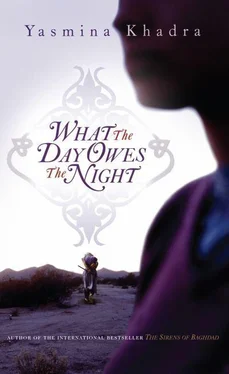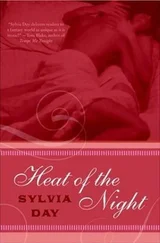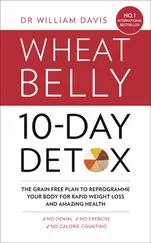Then, without warning, disaster struck. I woke one night to hear the dog howling. When I looked out, I thought the sun had tumbled from the sky and landed in our fields. Though it was three a.m., it was so bright it seemed like noon. My mother stood wordlessly by the door, her head buried in her hands. The flickering light outside sent her several shadows scurrying along the walls behind me. My sister sat crouched in her corner, fingers stuffed into her mouth, eyes vacant.
I dashed outside and saw a sea of fire surging and rolling across the fields, the flames so high they seemed to light the heavens, from which not a single star looked down.
Dripping with sweat, his bare chest slashed with streaks of soot, my father had gone mad. Over and over he filled a tiny bucket from the trough and rushed towards the blaze, disappearing into the flames, then reappeared, filled his bucket again and stumbled back into the inferno. Though his efforts were absurd, he could not face the thought that there was nothing he could do, that no prayer, no miracle could prevent his dreams from going up in smoke. My mother, knowing all was lost, watched her husband tear around, terrified that there would come a moment when he did not re-emerge from the flames. My father was capable of trying to gather in sheaves of the blazing wheat and burning with them. For it was only among his crops that he truly felt at home.
At dawn, he was still trying to douse the wisps of smoke that rose from the charred stubble. Nothing remained of the crops and yet he refused to see it. Out of spite.
It was a terrible injustice.
Three days before harvest.
Two inches from salvation.
One breath from redemption.
Later that morning, my father was finally compelled to face facts. His bucket dangling from one hand, he looked up to survey the extent of the disaster. For a long time he stood, legs trembling, eyes bloodshot, face distorted; then he fell to his knees, collapsed on his belly, and before our incredulous eyes did something a man should never do in public – he wept . . . He wept until he had no tears left to cry.
It was then that I realised that our guardian angels had abandoned us, that we would be cursed until the day of judgement.
For us, time stood still. True, the day still bowed before the night, darkness still gave way to dawn, vultures still wheeled in the sky, but to us it was as though all things had ended. History had turned a page and we no longer figured in what happened next. For days my father paced his razed fields, wandering among the shadows and the stubble from sunrise to sundown like a ghost trapped among ruins. My mother watched him through the hole in the wall that served us as a window. Every time he slapped his thighs, his cheeks, she made a hurried sign, called out to every marabout – every holy man – in the region to intercede; she was convinced that her husband had lost his mind.
A week later, a man came to visit our shack. Wearing a ceremonial uniform, his beard carefully trimmed, chest bedecked with medals, he looked like a sultan. This was the kaid, escorted by his praetorian guard. Without troubling to get down from his barouche, he instructed my father to append his fingerprints to some documents that a Frenchman, pale, gaunt and dressed all in black, had pulled from his briefcase. My father did not protest. He rolled his fingertips on the ink-soaked sponge and pressed them to the papers. As soon as the documents were ‘signed’, the kaid drove off leaving my father standing in the yard, staring from his ink-stained fingers to the barouche as it moved away up the hill. Neither my mother nor I dared speak to him.
The next day, my mother gathered our few belongings into bundles and packed them into the cart.
It was over.
For the rest of my life I will remember that day, the day my father stepped through the looking glass. It was overcast, the sun hung crucified above the mountain, the horizon was a blur. Even at noon it felt as though we were enveloped in some endless, silent twilight, as though the universe itself had fled leaving us to our misery.
My father took the reins, his shoulders hunched, eyes fixed on the floor, and urged the mule on, taking us I knew not where. My mother huddled against the slatted sides of the cart, hidden behind her veil, barely distinguishable from the sacks and bundles. My little sister, her eyes vacant, kept her fingers pressed into her mouth. My parents had not noticed that their daughter had stopped eating, that something in her spirit had broken on that night when hell itself had rained down on our farm.
The dog followed the cart at a distance, careful not to be seen. From time to time it stopped on the brow of a hill and sat on its haunches as though determined to hold out until we disappeared from view, then leapt up and bounded after us, muzzle trailing along the ground, desperately trying to catch up. When it drew closer, it would slow and then wander off the road and sit, miserable, distraught. The dog knew that wherever we were headed, there was no place for it. My father had made this clear by hurling stones at it as the cart pulled away from the farm.
I loved my dog. He was my one friend, my only confidant. I wondered what would become of him, what would become of both of us now that our paths had parted.
We travelled for miles without encountering a solitary soul, as though fate had cleared the landscape of every other creature so it might have us to itself. The dirt road rushed along ahead of us, bare and mournful. It looked like our fortune.
Late in the afternoon, in the haze of the sweltering sun, a small black speck appeared in the distance. My father jerked the bridle of the mule towards this makeshift tent, a rickety construction of posts and hessian that stood in the deserted landscape as though it had appeared out of a dream. He instructed my mother to get down and wait beside a large boulder. In our world, when men meet, women are expected to withdraw; there is no greater sacrilege than to see one’s wife stared at by a stranger. My mother did as she was asked, taking Zahra in her arms, and went and crouched in the shadow of the rock.
The merchant was a small, wizened man with ferret-like eyes sunk in a face mottled with blackish pustules. He wore tattered Arab trousers over mouldering shoes with gaping holes through which poked his misshapen toes. His threadbare waistcoat did little to hide his scrawny chest. He peered at us from beneath his makeshift tent, one hand on his club. When he realised we were not thieves, he dropped the stick and stepped out into the sunlight.
‘People are wicked, Issa,’ he greeted my father. ‘It is in their nature. It is little use to hate them for it.’
My father drew to a halt. He knew all too well what the man was referring to, but he did not answer.
‘When I saw the fire in the distance that night,’ the man said, ‘I knew that some poor soul was heading straight for hell, but not for a moment did I think that it was you.’
‘It is the Lord’s will,’ my father said.
‘That is not true, and you know it. If men are evil, the Lord cannot be blamed. It is unjust to burden Him with crimes that we alone make possible. Issa, my friend, who could hate you so that they would burn your crops?’
‘It is God who decides our fate,’ said my father.
The merchant shrugged. ‘Men invented God to distract them from their demons.’
As my father stepped down from the cart, the tail of his gandurah snagged on the seat. This, he decided, was another evil omen. His face flushed with anger.
‘Are you going to Oran?’ the merchant asked.
‘Who told you that?’
‘When a man has lost everything, he goes to the city . . . Be careful, Issa. The city is no place for people like us. Oran is teeming with villains more deadly than cobras, more cunning than the Devil, who fear neither God nor man.’
Читать дальше












